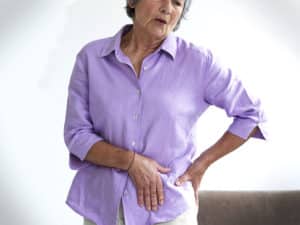 Our hips serve many purposes. They support our weight, allow us to sit, walk, and run. It is perhaps one of the most essential joints in our bodies. When we experience hip pain, it is a problem. There are a multitude of underlying conditions that might be associated with your hip pain, including osteoarthritis, bursitis, labral tears, hip impingement, ankylosing spondylitis, as well as soft tissue and muscle injuries.
Our hips serve many purposes. They support our weight, allow us to sit, walk, and run. It is perhaps one of the most essential joints in our bodies. When we experience hip pain, it is a problem. There are a multitude of underlying conditions that might be associated with your hip pain, including osteoarthritis, bursitis, labral tears, hip impingement, ankylosing spondylitis, as well as soft tissue and muscle injuries.
Hip Osteoarthritis
Perhaps the most common cause of hip pain is osteoarthritis. Over the years, our hip joint deteriorated as a result of osteoarthritis. Cartilage that used to cover and protect our bones has since disappeared which has lead to friction, creating inflammation and pain. You might find that symptoms are more apparent in the morning, following activity, or after you have sat for an extended period of time.
- Symptoms of Hip Osteoarthritis… aching pain in your groin or along the side/back of your hip, stiffness and the inability to move your hip beyond a limited range, your hip crunches, grinds, or pops, or you notice that your are having a hard time bending at the hip.
Hip Bursitis
Hip bursitis is the inflammation of a bursa close to the hip joint. It can occur as the result of an old injury or if you have any problems in your lower back that affect your hip’s biomechanics. This condition can worsen and become chronic if left untreated.
- Symptoms of Hip Bursitis… pain on the side your hip, pain is worsened after repetitive activity, tenderness when you apply pressure to your hip.
Labral Tear
The hip labrum consists of a strong, flexible cartilage that are in the shape of a ring. This rims the outer edge of the hip socket. Because it is made of cartilage, it may tear over time and can be injured easily. Patients tend to cup their hand on the side of their hip to show the location of their pain to their physician.
- Symptoms of a Labral Tear… constant, full aches in the groin, buttocks, and/or thigh when you’re sitting own. This will feel deep. Sharp and stinging pain that come and go and get worse with activity.
Hip Impingement
When a bony growth forms on the hips ball and socket, they can cause an unusual contact between the bones. This may limit the hip’s range of motion. Hip Impingement can develop with osteoarthritis, labral tear, or in some instances, both.
- Symptoms of Hip Impingement… pain in the groin area or along the outer hip. It may feel like a stabbing pain that is triggered by movements like twisting and/or squatting.
Ankylosing Spondylitis
Ankylosing Spondylitis affects the sacroiliac joint that connects the base of the spine to the pelvis. This condition will cause you to feel pain in your lower back or hips. Ankylosing spondylitis is a form of systemic inflammatory arthritis that will make your immune system attack other joints in your body. In addition to hip pain, rheumatoid and psoriatic arthritis can also result in inflammatory arthritis.
- Symptoms of Ankylosing Spondylitis… pain in the buttocks, lower back, and hip that radiates down to your thigh, joint pain including in your knees, shoulders, or ankles. Joint pains and stiffness in the morning that may interfere with your sleep, feeling fatigued or unwell.
Soft Tissue and Muscle Injuries
Your hips are surrounded and intersected by muscles, tendons, and ligaments that get stretched out or injured resulting in hip pain. If your hip pain is long lasting or affects your day-to-day life, reach out to your doctor and talk about your symptoms. Your doctor will be able to diagnose your problem and create a treatment plan to reduce pain and fix your condition.
For persistent pain that is interfering with your daily activities, see a rheumatologist to make the correct diagnosis and begin the proper treatment.
Contact Us (859-331-3100) For More Information to Request an Appointment
—
 About Tristate Arthritis and Rheumatology
About Tristate Arthritis and Rheumatology
Tristate Arthritis and Rheumatology is first and largest Rheumatology practice in the Northern Kentucky area. Founded by Dr. Arthur Kunath in 1986, our rheumatology practice now consists of six doctors who are board certified in both Internal Medicine and Rheumatology and a Physician Assistant. Patients see one doctor (except in emergencies), thereby assuring continuity of care and an individualized doctor-patient atmosphere giving the physician the ability to establish personalized and detailed relationships. Our doctors have received numerous awards, including being listed as “Top Doctors” in Cincinnati Magazine, receiving the Patient’s Choice Award, the Most Compassionate Doctor Award, and the American College of Rheumatology’s “My Doc Rocks” award.
>> Learn More


